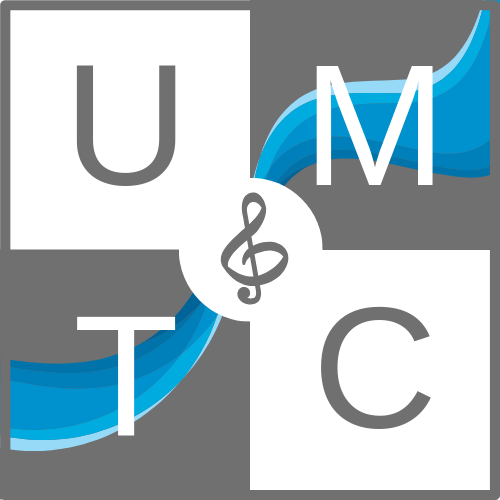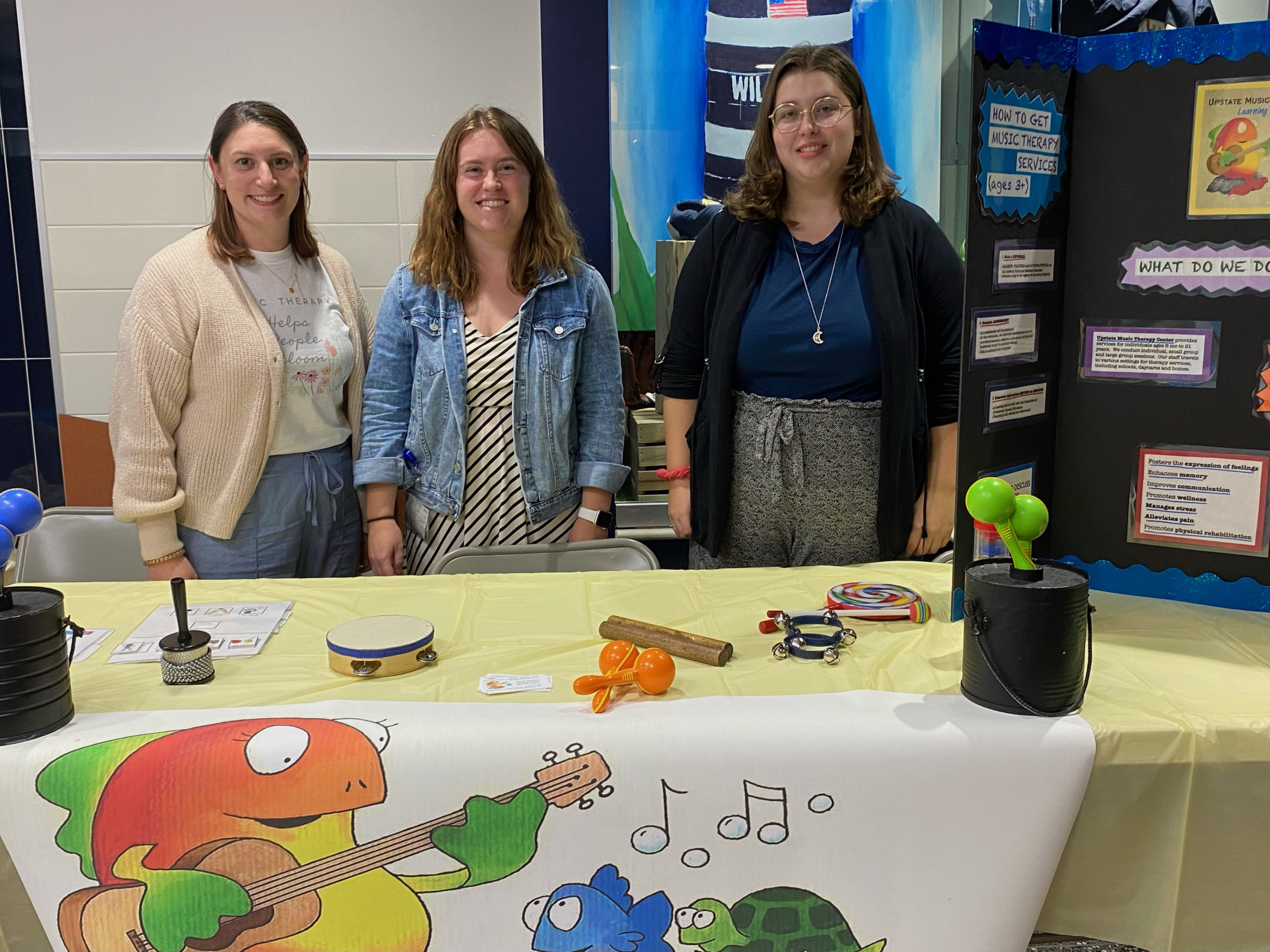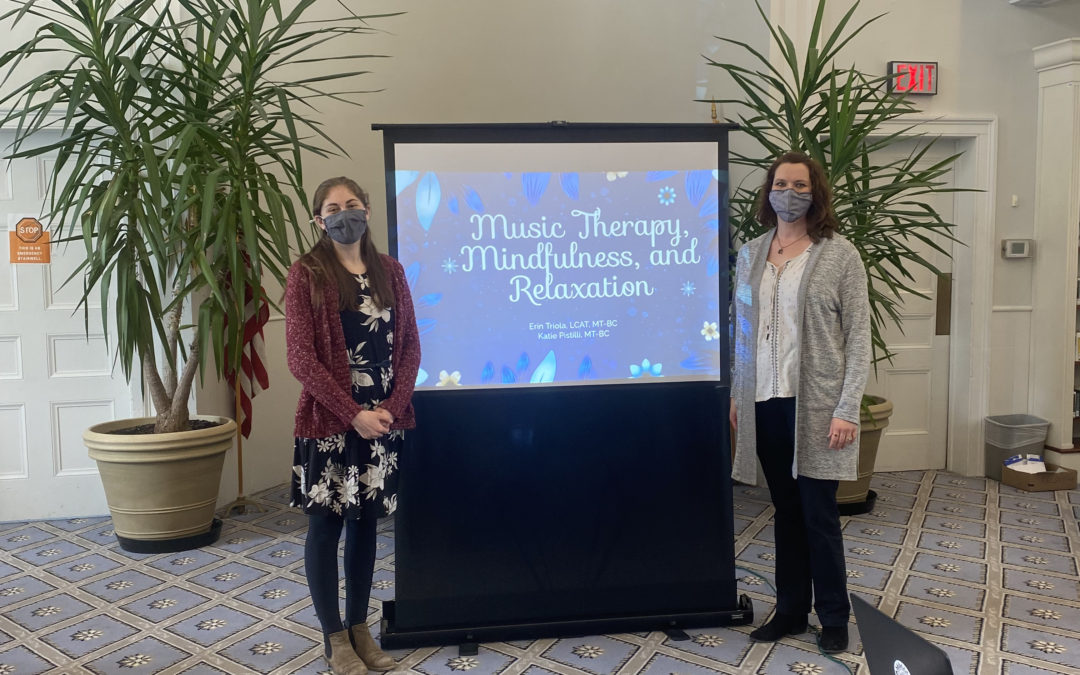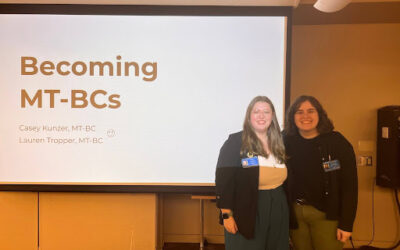This blog was written by Casey Kunzer, MT-BC On March 1st myself and my colleague Lauren had the opportunity to attend and present at SUNY Fredonia’s Mini Music Therapy Conference. Our presentation, “Becoming MT-BCs,” aimed to educate and empower student music...

World Music Therapy Week 2024
This blog was written by Robin Neary and Amy Thomas.
Happy World Music Therapy week! It brings us joy to know that all around the world music therapists are coming together to celebrate and educate our communities on our profession. This year, Upstate Music Therapy Center would like to take a moment and share what our profession is all about. To start, what is music therapy?
Music therapy is a type of therapy that uses music to help people improve their emotional, physical, cognitive, and social well-being. Music therapists are trained to use music in a variety of ways to help people achieve their therapeutic goals. They use evidence-based practice to discern what music therapy interventions will help their clients achieve their goals.
Music therapy can be used to help people with a variety of mental health conditions, including depression, anxiety, autism, and dementia. It can also be used to help people cope with stress, trauma, and grief.
Music therapy can work in several ways. It can help to:
- Regulate emotions
- Improve mood
- Reduce stress and anxiety
- Promote relaxation
- Enhance cognitive function
- Improve communication skills
- Promote social interaction
- Boost self-confidence
Music therapy can be used in individual or group settings. A typical music therapy session may involve listening to music, playing instruments, singing, or moving to music. The specific activities that are used will be tailored to the individual’s needs and goals.
Here are some examples of what a music therapist could implement to help people with mental health conditions:
- Use calming music to help a person with anxiety relax and reduce their symptoms
- Use upbeat music to help a person with depression improve their mood and energy levels
- Use songwriting to help a person with trauma process their experiences and express their emotions
- Use group music therapy to help people with autism learn social skills and communication skills
Music therapy is a safe and effective treatment for a variety of mental health conditions. It is a non-invasive and enjoyable way to improve emotional, physical, cognitive, and social well-being.
If you are interested in learning more about music therapy, you can talk to your doctor or a mental health professional. You can also find a music therapist in your area by searching online or contacting the American Music Therapy Association. If you are located in the Rochester NY area, we would love to answer your questions or assist you or a family member in obtaining music therapy. Contact us today!






